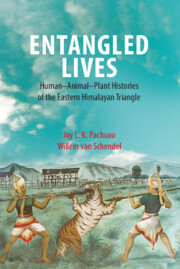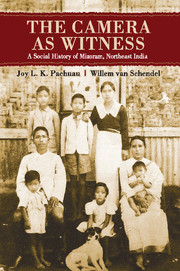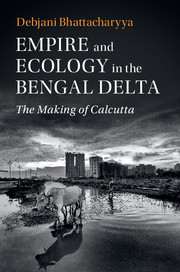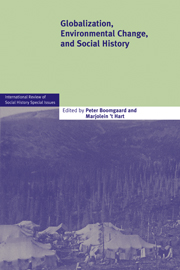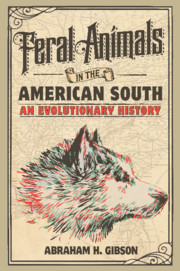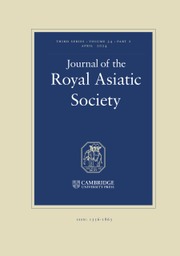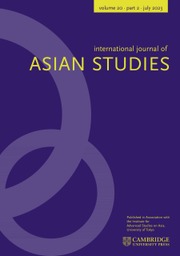Entangled Lives
Human-Animal-Plant Histories of the Eastern Himalayan Triangle
£90.00
- Authors:
- Joy L. K. Pachuau, Jawaharlal Nehru University, India
- Willem van Schendel, University of Amsterdam, Netherlands
- Date Published: November 2022
- availability: In stock
- format: Hardback
- isbn: 9781009215473
£
90.00
Hardback
Other available formats:
eBook
Looking for an inspection copy?
This title is not currently available on inspection
-
This book considers three questions about understanding the past. How can we rethink human histories by including animals and plants? How can we overcome nationally territorialised narratives? And how can we balance academic history-writing and indigenous understandings of history? This is a tentative foray into the connections between these questions. Entangled Lives explore them for a large area that has seldom been explored in academic inquiry. The 'Eastern Himalayan Triangle' includes both uplands and lowlands. The region is the meeting point of three global biodiversity hotspots connecting India and China across Myanmar/Burma, Bangladesh and Bhutan. The 'Triangle' is treated as a multispecies site in which human histories have always been utterly intertwined with plant and animal histories. It foregrounds that history is co-created – it is always interspecies history – but that its contours are locally specific.
Read more- Critiques anthropocentrism by understanding human histories as embedded in multiple nonhuman ones
- Discusses how nonhumans have always co-designed human societies, just as humans have co-designed nonhuman lives
- Balances academic and indigenous understandings of history by discussing non-academic interpretations of deep-history, temporality, and interspecies relations
Reviews & endorsements
'Entangled Lives builds on the fundamental insight that history is always interspecies history. With elegance and in-depth knowledge, Joy Pachuau and Willem van Schendel outline a new mode of writing history where the lives of animals and plants matter and where scholars have to rethink taken for granted geographies and temporalities. This is a highly ambitious project that takes us from the movement of tectonic plates to indigenous cosmologies in the region that they aptly name the 'Eastern Himalayan Triangle'. It is a marvellous read, a book full of telling accounts of human care for elephants, mithun, bamboo, areca nut and other living beings. Through these entangled histories of co-becoming, we face the larger question of how to survive on a damaged planet.' Bengt G. Karlsson, Stockholm University, Sweden
See more reviews'Reading Entangled Lives, is a most effective way of getting acquainted with the Eastern Himalayan Triangle, a territory that forms a geographical and ecological region, buttressed between India and China at the core of which lies North-East India. The Triangle cuts across many international boundaries raising fascinating questions for the historian. A striking feature of this study is the charting of inter-relationships between plant, animal and human life, drawing on the symbolism of local narratives and information from contemporary disciplines. The book is a most impressive statement on how these human societies have related to their landscape, cosmologies, histories, and informs us about the continuities from the past and the changes in the present. Maps and illustrations add to the readability of a very accessible text.' Romila Thapar, Professor Emerita, Jawaharlal Nehru University, New Delhi
'Entangled Lives – the first more-than-human history of the Eastern Himalayan Triangle by two master historians – is a groundbreaking text on the accounts of storying the intertwinement of Himalayan geology, homo sapiens, animals, and plants in the span of 40,000 years, overcoming modern anthropocentric historiographies' blindness to nonhuman lifeworlds, and recounting the co-creating, co-becoming, and co-transforming roles of humans and nonhumans who have together shaped the shared habitability of the Triangle. The authors' planetary engagement with a regional interspecies history critically reaffirms the invaluable role of more-than-human perspectives in our understanding of locally-manifested planetary challenges!' Dan Smyer Yü, Yunnan University, China; International Faculty Member, Universität zu Köln, Germany
'This book is a must read for historians, scholars, and academicians interested in the Eastern Himalayan region. It encourages readers to relearn and reexamine the region's history, narratives, practices, traditions and the interconnectedness that exists among them.' Ramnath Reghunandhan and Loung Nathan K. K., Asian Affairs
Customer reviews
Not yet reviewed
Be the first to review
Review was not posted due to profanity
×Product details
- Date Published: November 2022
- format: Hardback
- isbn: 9781009215473
- length: 315 pages
- dimensions: 237 x 161 x 26 mm
- weight: 0.6kg
- availability: In stock
Table of Contents
List of Maps
List of Plates
Acknowledgements
Introduction
Part I. The Deep Past:
1. An Epic Crash
2. Human Beginnings
3. Changing the Environment
4. Livelihoods
Part II. Cosmologies:
5. Stories of Human Origins
6. Human-animal Histories
7. Human-plant Histories
Part III. More-Than-Human Histories:
8. Cultural geographies
9. Exploiting Natural Resources
10. Dealing with Environmental Decay
11. The Elephant Strikes Back
Conclusion
Bibliography
Copyrights and Sources
Index.
Sorry, this resource is locked
Please register or sign in to request access. If you are having problems accessing these resources please email [email protected]
Register Sign in» Proceed
You are now leaving the Cambridge University Press website. Your eBook purchase and download will be completed by our partner www.ebooks.com. Please see the permission section of the www.ebooks.com catalogue page for details of the print & copy limits on our eBooks.
Continue ×Are you sure you want to delete your account?
This cannot be undone.
Thank you for your feedback which will help us improve our service.
If you requested a response, we will make sure to get back to you shortly.
×
